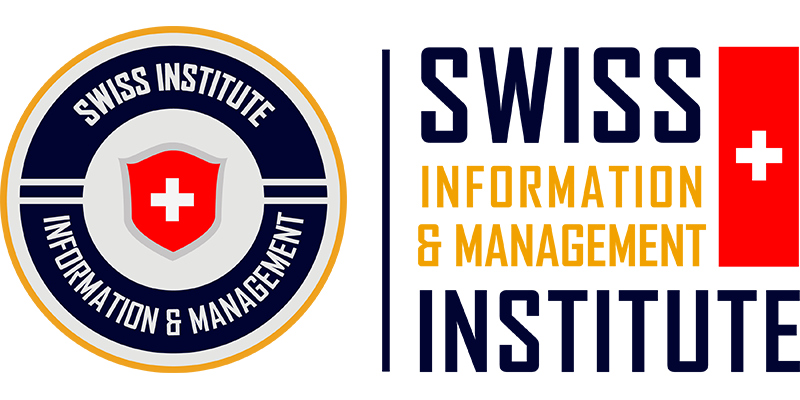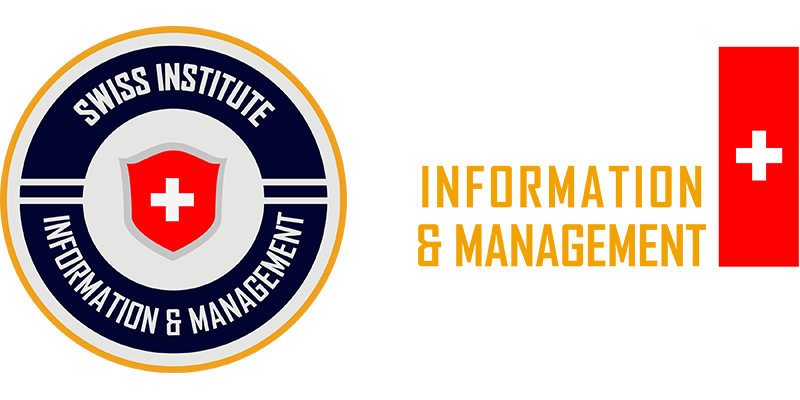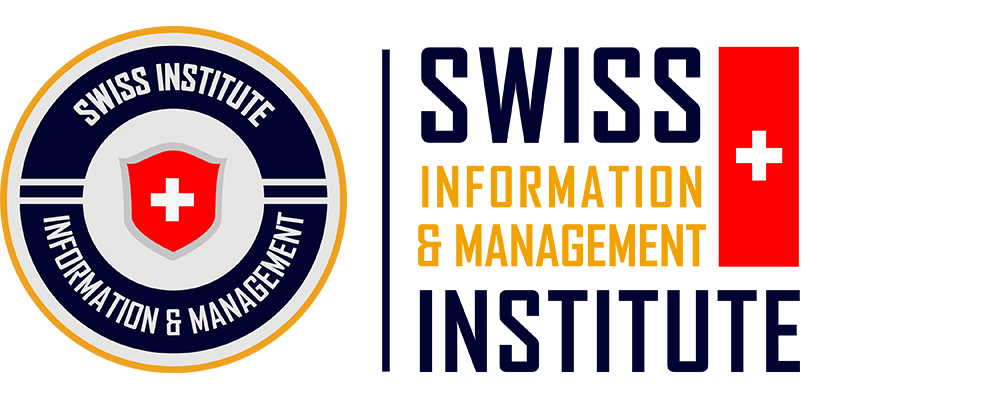Master of Business Administration
A Leading Master of Business Administration in Human Resource Management program in collaboration with Asia Metropolitan University.
The Master of Business Administration (MBA) program, in collaboration with Asia Metropolitan University (AMU), is designed for professionals aiming to deepen their expertise in managing people and driving organizational development. The program emphasizes strategic management, leadership, talent development, and performance optimization, preparing learners to become influential leaders in today’s dynamic and global workforce.
Designed for working professionals, SIMI provides an academic support system to ensure students are well-prepared for success. Students also benefit from the Swiss Colloquium and various networking opportunities to expand their professional and social connections.
Along with globally recognized qualification, the SIMI Swiss Master program understands what students need:
- Fully Accredited & Recognized
- Multiple Qualifications from SIMI & Asia Metropolitan University
- Flexible Learning Model
- Academic Support While Studying
- Stay current with the latest trends through Colloquium abroad
- Tuition fee support provided by Swiss EduFund
Qualifications within an MBA Program:
- Master of Business Administration in Majors from Swiss Information and Management Institute
- Master of Business Administration from Asia Metropolitan University
Fully Accredited & Recognized
SIMI’s partner is a university recognized by the Ministry of Higher Education (DU054(J)), and the program is nationally accredited by the Malaysian Qualifications Agency (MQA/FA2819).
Flexible Learning Model
This program combines online learning with study abroad at the Partner University’s campus, offering students flexible education alongside valuable international experience.
Financial Aid by Swiss EduFund
The program is subsidized and supported by SIMI Swiss, making the tuition significantly more affordable compared to the original programs in Asia.
Academic Support Systems
The academic, research and language support system helps students overcome challenges so they can focus solely on excelling in their studies.
Courses & Learning Outcomes
Semester 1
1. Organizational Behaviour (MBA 6013)
Overview
- Individual and Group Behaviour: Explore how personal values, perception, and motivation influence behavior in the workplace.
- Organizational Culture and Structure: Understand how culture and organizational design shape communication and performance.
- Leadership and Team Dynamics: Analyze various leadership styles and their impact on team collaboration and effectiveness.
- Change Management and Conflict Resolution: Learn how to manage organizational change and resolve conflicts constructively.
Unit Aims
- Understanding Human Behaviour in Organizations: Gain insights into how individuals and groups interact within a professional setting.
- Enhancing Organizational Effectiveness: Develop strategies to foster positive work environments and improve productivity.
- Applying Behavioural Insights: Utilize behavioral knowledge to solve workplace challenges and drive performance.
2. Marketing Management (MBA 6033)
Overview
- Marketing Concepts and Strategies: Examine fundamental marketing principles and their application in competitive markets.
- Consumer Behaviour: Understand the factors that influence purchasing decisions and customer loyalty.
- Market Research and Analysis: Learn techniques for gathering and interpreting market data to inform decisions.
- Product, Price, Place, and Promotion: Analyze the marketing mix and its role in achieving organizational objectives.
Unit Aims
- Developing Marketing Strategies: Equip students to design effective marketing plans aligned with business goals.
- Understanding Market Dynamics: Build knowledge on how markets evolve and how to respond to change.
- Applying Marketing Tools: Use analytical tools to evaluate and improve marketing performance.
3. Managerial Economics (MBA 6063)
Overview
- Economic Principles for Managers: Introduce microeconomic and macroeconomic concepts relevant to business decisions.
- Demand and Supply Analysis: Understand market equilibrium, elasticity, and consumer behavior.
- Cost, Production, and Pricing: Examine cost structures, production functions, and pricing strategies.
- Market Structures and Competition: Explore different market forms and their impact on strategic choices.
Unit Aims
- Applying Economic Theory: Use economic reasoning to analyze managerial problems and opportunities.
- Improving Decision Making: Develop skills to optimize resource allocation and strategic planning.
- Evaluating Market Conditions: Assess competitive environments and their influence on business policy.
4. International Business (MBA 6243)
Overview
- Global Business Environment: Explore economic, political, and cultural factors affecting international trade.
- Cross-Border Strategy: Understand how firms develop strategies for global competition and cooperation.
- International Market Entry: Study different modes of entry and their advantages and risks.
- Managing International Operations: Examine organizational challenges in global supply chains and operations.
Unit Aims
- Understanding International Business Dynamics: Gain knowledge of global markets and international business trends.
- Developing Global Strategies: Equip students to formulate effective strategies for international growth.
- Managing Cross-Cultural Teams: Build skills to lead and collaborate in diverse, multinational settings.
5. Research Methodology (MBA 6683)
Overview
- Research Design and Methods: Learn various qualitative and quantitative research approaches.
- Data Collection and Analysis: Understand techniques for gathering and interpreting data accurately.
- Ethical Considerations: Explore ethical issues and responsibilities in conducting research.
- Report Writing and Presentation: Develop skills for effective communication of research findings.
Unit Aims
- Building Research Competence: Prepare students to design and conduct rigorous academic research.
- Enhancing Analytical Skills: Equip learners to analyze data and draw valid conclusions.
- Improving Academic Communication: Foster the ability to write and present research professionally.
Semester 2
1. Operations Management (MBA 6093)
Overview
- Operations Strategy and Competitiveness: Understand how operations contribute to achieving competitive advantage.
- Process Analysis and Improvement: Learn techniques for mapping, analyzing, and improving operational processes.
- Supply Chain Management: Explore the management of supply chains to optimize flow of goods and services.
- Quality and Performance Management: Study tools and methods for managing quality and measuring operational performance.
Unit Aims
- Developing Operational Excellence: Equip students with skills to design and manage efficient operations.
- Improving Process Efficiency: Understand how to identify bottlenecks and implement process improvements.
- Applying Supply Chain Concepts: Learn to coordinate supply chain activities to enhance overall business performance.
2. Accounting For Managers (MBA 6053)
Overview
- Fundamentals of Financial Accounting: Understand key accounting concepts and financial statements.
- Management Accounting Techniques: Explore budgeting, costing, and performance measurement tools.
- Decision Making Using Accounting Information: Learn how accounting data supports managerial decisions.
- Financial Statement Analysis: Analyze financial reports to assess organizational health and profitability.
Unit Aims
- Interpreting Financial Information: Enable students to read and interpret financial statements effectively.
- Applying Management Accounting Tools: Use accounting techniques to support planning and control.
- Making Informed Decisions: Develop the ability to use accounting data for strategic and operational decisions.
3. Corporate Finance (MBA 6023)
Overview
- Financial Markets and Instruments: Understand the role of financial markets and key instruments.
- Capital Budgeting and Investment Decisions: Study methods for evaluating investment projects.
- Cost of Capital and Capital Structure: Analyze how firms finance their operations and optimize capital mix.
- Dividend Policy and Risk Management: Explore dividend decisions and techniques to manage financial risk.
Unit Aims
- Understanding Corporate Finance Principles: Provide knowledge of core finance concepts applicable in business.
- Evaluating Financial Decisions: Equip students to analyze and make sound investment and financing decisions.
- Managing Financial Risk: Develop skills to identify and mitigate financial risks effectively.
4. Human Resource Management (MBA 6673)
Overview
- HRM Functions and Roles: Explore core functions including recruitment, training, and performance management.
- Strategic HRM: Understand how HR supports organizational goals and competitive advantage.
- Employee Relations and Labour Law: Study frameworks governing workplace relations and compliance.
- Talent Management and Development: Learn techniques for attracting, retaining, and developing talent.
Unit Aims
- Applying HRM Best Practices: Prepare students to manage human resources effectively in organizations.
- Supporting Organizational Strategy: Develop the ability to align HR initiatives with business objectives.
- Handling Employee Relations: Equip learners to manage workplace issues and legal compliance.
5. Business Statistics (MBA 6073)
Overview
- Descriptive Statistics: Learn techniques to summarize and describe data sets effectively.
- Probability Theory: Understand the basics of probability and its application to business decisions.
- Inferential Statistics: Study hypothesis testing, confidence intervals, and regression analysis.
- Data Analysis and Interpretation: Apply statistical tools to analyze business data for decision making.
Unit Aims
- Understanding Statistical Concepts: Build foundational knowledge of statistics relevant to business.
- Analyzing Data: Equip students to apply statistical methods to solve business problems.
- Making Data-Driven Decisions: Develop skills to interpret statistical results for managerial decisions.
Semester 3
1. Strategic Management (MBA 6083)
Overview
- Strategy Formulation and Implementation: Study the process of creating and executing business strategies to achieve competitive advantage.
- Environmental and Industry Analysis: Analyze internal and external factors affecting organizational performance.
- Strategic Leadership: Understand the role of leadership in guiding strategy and managing change.
- Corporate Governance and Ethics: Explore principles of responsible management and ethical decision-making.
Unit Aims
- Developing Strategic Thinking: Equip students with the ability to think critically and strategically in complex environments.
- Implementing Effective Strategies: Prepare learners to translate strategic plans into actionable initiatives.
- Enhancing Leadership Skills: Foster leadership capabilities necessary for driving organizational success.
2. Business Informatics (MBA 6043)
Overview
- Information Systems in Business: Understand the role and impact of information systems on business processes.
- Data Management and Analytics: Explore techniques for managing data and extracting valuable business insights.
- Enterprise Systems and Technology: Study software solutions that support organizational operations and strategy.
- IT Strategy and Governance: Learn frameworks for aligning IT with business objectives and managing IT resources.
Unit Aims
- Integrating IT and Business: Equip students to leverage technology for business improvement and innovation.
- Analyzing Business Data: Develop skills to use data analytics for informed decision-making.
- Managing IT Resources: Prepare learners to oversee IT investments and governance effectively.
3. Project Paper (MBA6696)
The Project Paper is the final assignment completed by MBA learners at the end of their program. The objective of the Project Paper is to consolidate and apply the knowledge and skills accumulated throughout the course. Unlike traditional exams, the Project Paper requires learners to solve real-world problems or address challenges in their field.
Main Features of the Project Paper:
- Practical Application: Learners tackle real business issues, conduct research, or develop strategic plans for an organization, either real or hypothetical.
- Knowledge Integration: The Project Paper requires learners to synthesize and apply concepts from various subjects, demonstrating systems thinking and effective use of information in a professional context.
- Research Component: An important part of the Project Paper involves collecting, analyzing, and interpreting data to support conclusions and recommendations.
- Submission and/or Presentation: Upon completion, learners are required to submit and/or present their Project Paper to the institution.
Benefits After Completing the Project Paper:
- Real-World Experience: Learners gain hands-on experience in addressing business problems and applying their knowledge to practical situations.
- Skill Development: The Project Paper enhances critical thinking, problem-solving, research, and communication skills.
- Professional Portfolio: The final output of the Project Paper can serve as a demonstration of capability, useful in interviews or career advancement.
- Networking Opportunities: The Project Paper often creates chances to connect with industry professionals and build valuable relationships.
Entry requirements & Learning methods
1. Entry Requirements
In addition to the entry requirements, candidates applying to the program are also assessed for their suitability by the admissions committee before joining the program to ensure that they can acquire and benefit from the program.
Entry requirements:
To enroll this program, learners must possess one of the criteria below:
- A bachelor’s degree with a minimum CGPA of 2.50 or equivalent, as accepted by AMU; OR
- A bachelor’s degree with a minimum CGPA of 2.00 and not meeting a CGPA of 2.50, can be accepted subject to rigorous internal assessment.
English requirements:
If a learner is not from a predominantly English-speaking country, proof of English language proficiency must be provided through one of the following:
- IELTS: 6.0
- TOEFL iBT: 60
- Pearson Test of English: 59
- Cambridge English Qualifications and Test: 169
Please note:
- In case of not having an English proficiency certificate, the candidate can provide it within 6 months.
- SIMI and AMU reserve the right to make admissions decisions based on the requirements of recognized agencies and the global quotas of the program.
2. Learning methods
1. Off-Campus Mode
The program is a combination between Live Classes with local tutors (where applicable) for a hybrid learning experience.
- Offering interactive, real-time engagement with instructors.
- Local tutors provide additional guidance to help learners apply theoretical concepts to practical scenarios.
- Ideal for busy professionals seeking flexibility with personalized support.
Learn more about overview of enrolling in online classes at SIMI Swiss [Video HERE]
Learn more about the Effective of SIMI Pedagogy [Video HERE]
2. Fully Online Model
The program is implemented using a combined automated training model that includes:
- Optimized Online Learning System: Designed to enhance the self-study process.
- Bite-Sized Lectures: Lessons are structured in short, manageable modules, enabling students to grasp the content immediately after completing each module.
- Comprehensive Support System: Provides students with the necessary tools and support to efficiently fulfill course requirements.
Learn more about how to use the automated training model at SIMI Swiss [Video HERE]
3. Academic Support
We understand that pursuing an accredited postgraduate program can be both exciting and challenging, especially for busy adult learners. To help you overcome these challenges, we’ve created the SIMI Swiss Supporting Systems, designed to guide you through any difficulties during your studies.
For a full overview of the support available, be sure to watch our informative videos, offering help at every stage of your academic journey.
Program accreditations
AMU is recognized by the Ministry of Higher Education
- Fully recognized by the Ministry of Higher Education, AMU upholds the highest standards of academic excellence and quality: SEE RECOGNITION HERE.
The Master of Business Administration program is nationally accredited by MQA
- Master of Business Administration programs are accredited by the Malaysian Qualifications Agency (MQA) with the MQA/FA2819, ensuring that they meet national and international benchmarks: SEE ACCREDITATION HERE
Parnership Confirmation from AMU
- The Letter confirming the partnership between Asia Metropolitan University and SIMI Swiss (issued by AMU): CLICK HERE
Parnership Confirmation from SIMI
- The Letter confirming the partnership between Asia Metropolitan University and SIMI Swiss (issued by SIMI Swiss): CLICK HERE
You will get
Fully Accredited & Recognized
Subsidies and investment efficiency
Academic Support
All Master' Programs (Asia Campus)
Fully Accredited
Multi Recognition
Master of Science in Transportation and Logistics
Powered by LSCM Institute of Switzerland
Master of Science in Information Technology (By Research)
Powered by Swiss IT Institute
Master of Science in Information Technology (By Coursework)
Powered by Swiss IT Institute
Master of Science in Healthcare Management
Powered by Swiss Healthcare School


